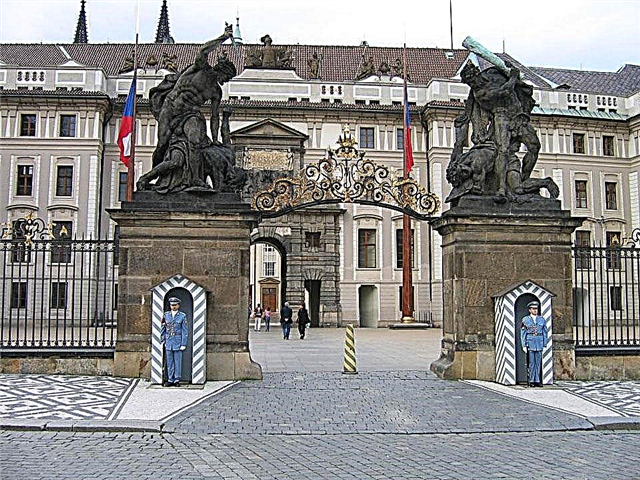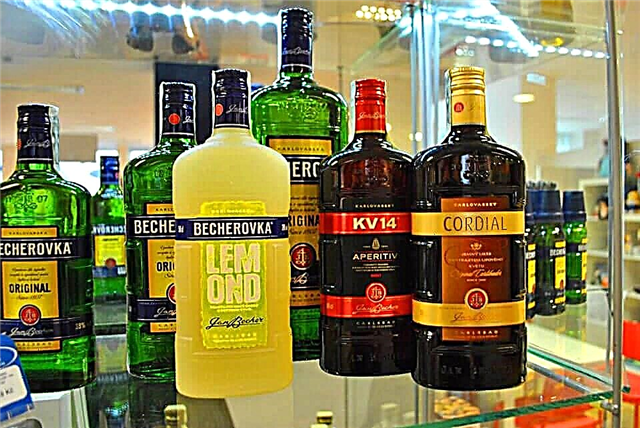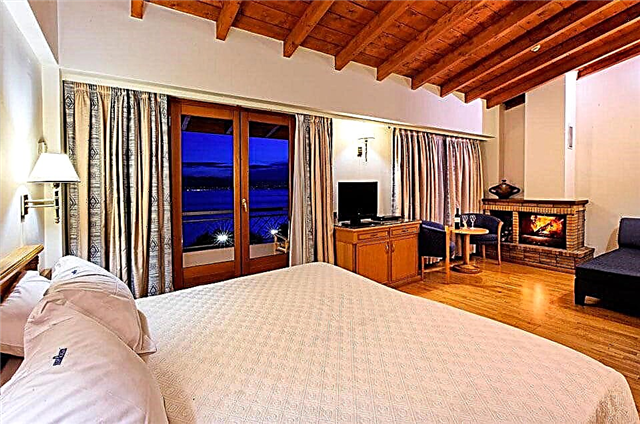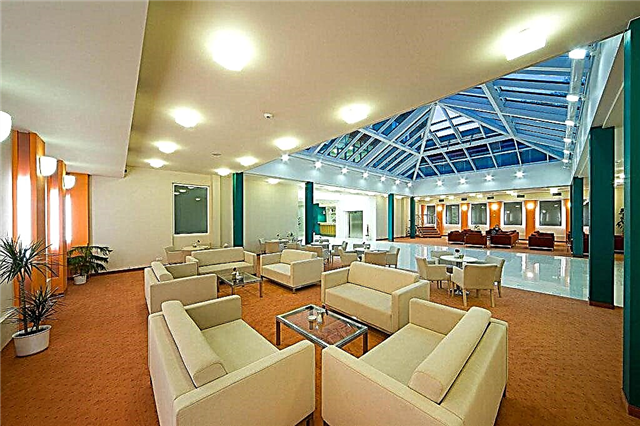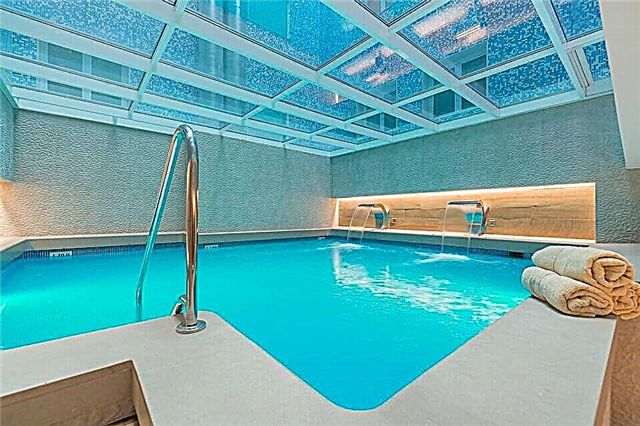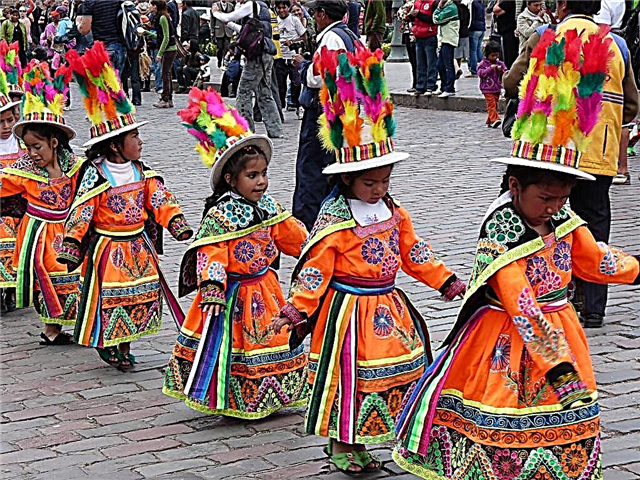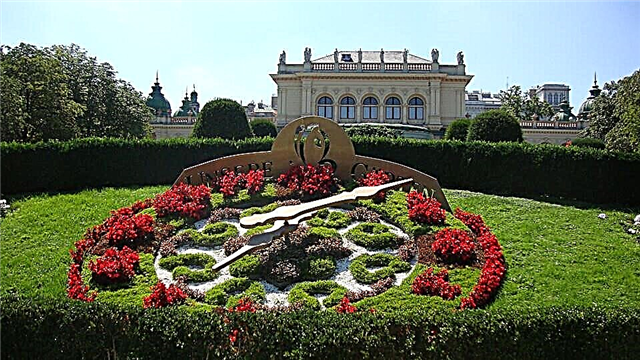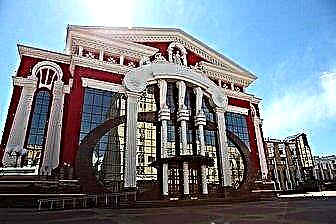Saransk received a powerful impetus for development after 2010, when it was selected as one of the candidates to host the 2018 FIFA World Cup. That is why funds from the federal budget began to be allocated for the restoration of architectural monuments, the construction of new cultural objects, as well as for improving the infrastructure and making the city more attractive. As a result, Saransk has become a well-groomed and rather interesting place, where there will be something for tourists to see.
The first step is to walk through the squares and streets, while glancing into local churches - both new and old churches are magnificent examples of traditional church building. Then you should visit the city museums, which are interesting not only for their expositions, but also for the buildings in which they are located. You can finish the walk in the park named after A.S. Pushkin or at the monument to Emelyan Pugachev.

The best hotels and hotels at affordable prices.
from 500 rubles / day
What to see and where to go in Saransk?
The most interesting and beautiful places for walking. Photos and a short description.
Cathedral of Theodore Ushakov
Outstanding monument of ecclesiastical architecture of the XXI century, built in the Empire style. The cathedral was erected in 2006 and consecrated by Patriarch Alexy II. The grandiose temple with a 60-meter dome is designed for 3 thousand parishioners. Inside there is a skillfully executed gilded iconostasis made of precious wood, the entrance portal is decorated with majestic marble columns. The whole appearance of the temple evokes thoughts of something lofty and unearthly.

Soviet square
The main city square, which arose in the middle of the 17th century. Its very first name is Sobornaya, later it was renamed into Torgovaya, Bazarnaya and, finally, in 1919, into Sovetskaya. Today, the architectural appearance of the square is formed by modern buildings of the XX century, historical buildings, alas, have not survived. The oldest building is the former House of Soviets, erected in the 1940s.

Millennium Square
It appeared in Saransk in 2012. It was built in honor of the anniversary of the unification of Russia and Mordovia. It occupies a fairly large area and is perfectly adapted for walking and organizing public events. One of its main decorations is the color music fountain "Star of Morodvia" with a diameter of 60 meters, in the center of which there is a solar sign of the national ornament.

Musical theater named after I. M. Yaushev
A musical stage where opera, ballet, operettas and musicals are staged. The theater also hosts children's performances and concerts. It was founded in 1935 and initially its repertoire was composed of comedy productions. In 2011, the troupe moved to a new building with a large auditorium with a capacity of over 700 spectators. The facade of the building is painted in white and red; columns, capitals and shapes resembling the outlines of musical instruments are used as decorative elements.

National Drama Theater
For the national republics of the Russian Federation, the tendency to build theaters focused on the works of local authors has long become the norm. In Mordovia, such a stage was built in the late 1980s. Most of the repertoire consists of works by Mordovian authors, which are shown in Erzya and Moksha with simultaneous translation. There are also plays by classical Russian and foreign playwrights, but there are much fewer of them.

Russian drama theater
Another theater stage in Saransk, but already specializing in a more classical repertoire - the works of Russian and foreign playwrights. The theater opened in 1932 and has developed successfully since then. Since the 1990s, the troupe has taken part in international and local festivals, receiving high marks from critics and audiences. To attract a wider audience, performances by contemporary authors are introduced into the repertoire.

Museum of Fine Arts named after S. D. Erzya
The museum was opened in 1960, in the 1970s it was renamed in honor of S. Erzya, the famous Mordovian sculptor. The basis of the collections is made up of his works, as well as the works of a native of the republic, artist FV Sychkov. In total, the museum funds store more than 15 thousand exhibits representing Russian and national Mordovian art, arts and crafts and modern trends.

National Museum of Local Lore
One of the oldest museum institutions in Mordovia, founded in 1918 at the initiative of representatives of the local intelligentsia. His many collections are located in several branches. One of the largest branches is a new building built in the 2000s. It resembles a classic 19th century palace, decorated with elements traditional for this style: arches, portico, columns, domed towers.

Museum of Mordovian Folk Culture
The museum collection is housed in a 19th century mansion, which is a monument of urban architecture. Before the Revolution of 1917, this house belonged to the merchant K. Kh. Barablin. The exposition consists of national clothes, handicrafts made by Mordovian craftsmen, agricultural tools, household items that give an idea of the culture of the peoples inhabiting Mordovia.

Museum of A.I. Polezhaev
The exposition of the museum is dedicated to the poet A. Polezhaev. It started working in 2001 on the territory of a 19th century wooden house. The collection consists of four sections dedicated to various periods of the author's life and work, as well as a literary living room, where poetry evenings and concerts are held. It should be noted that this is the only museum in Russia dedicated to the activities of A. Polezhaev.

Museum of Military and Labor Feat
The collection of the museum is part of the memorial complex erected in honor of the Victory in the Second World War. The institution opened in 1995. You should pay attention to the original building - the facade is composed of multi-colored granite slabs in the colors of the St. George ribbon, the shape of the structure resembles the outlines of the borders of Mordovia. The exposition is located in four halls, next to it there is an open area with an exhibition of military equipment.

Monument to the soldiers of Mordovia who fell during the Second World War
Memorial complex, located on pl. Victory. It includes several structures: a monument to soldiers, a Museum of military and labor exploits, another monument to soldiers-internationalists, a chapel and an obelisk "Escape from Hell". All elements of the complex appeared at different times - the earliest (a sculptural group depicting a woman handing a sword to her son-soldier) was built in the 1970s.

Makarovsky St. John the Theological Monastery
The men's monastery, located in the village of Makarovka. It was founded not so long ago - in 1995, on the lands where the Cathedral of St. John the Theologian has stood since the beginning of the 18th century, around which there was a cemetery. The building of the cathedral has survived to this day. Later, other churches were erected here, destroyed after the Revolution. That is, the monastery can be considered both new and old.

Church of St. John the Evangelist
The temple is the oldest preserved architectural object on the territory of Mordovia. Due to its value, it not only did not suffer during the persecution of religion, but even in the 1960s it was declared an architectural monument. The church was erected at the end of the 17th century, 200 years later a bell tower was added to it. Since 1944, it has been the only one operating in the republic.

Church of St. Nicholas the Wonderworker
Temple of the late 19th century, built according to the project of the Penza architect. The building was erected in a rather typical architectural style for that time, imitating classical Russian architecture.The facade and walls are made of red bricks. In Soviet times, the church was used for other purposes, but its appearance did not suffer from this at all - the building has survived to this day in its original form.

Temple of the Kazan Icon of the Mother of God
A new temple built in the 2000s in a stately neo-Byzantine style. True, with significant simplifications, given the current trends in architecture. There are several domes on the central quadrangle, along the edges there are a three-tiered bell tower and semicircular apses. The entrance is decorated with decorative arches and large windows, due to which there is a lot of light inside the building.

Monument to Emelyan Pugachev
During the Pugachev uprising, the inhabitants of Saransk gave the rebel and his army a warm welcome. During his stay in the city, he freed all the peasants and divided the food supplies among the poorest, and also executed many merchants and officials. The monument in his honor is the only one in Russia. The mighty figure of Yemelyan crowns an impromptu fortress wall.

Monument to the stratonauts
The monument is dedicated to I. Usyskin, A. B. Vasenko and P. F. Fedoseenko, who in the 1930s created the apparatus "Osoaviakhim-1" and rose on it to an altitude of 22 km into the stratosphere. The flying device crashed, killing all three. In memory of this tragic event in the 1950s, a sculptural group was erected in Saransk in the form of a young man standing on a pedestal with bas-reliefs of the flight participants.

"Mordovia Arena"
Football stadium built for the 2018 FIFA World Cup. It was founded in 2010. The estimated capacity is over 40 thousand spectators. After the competition and reconstruction, which includes a reduction in the number of stands and the construction of additional space for the placement of sports facilities, the arena will become the home arena for the local FC Mordovia.

A. Pushkin Park
The park was founded in the 19th century, when the first trees were planted in one of the city squares around the church. The final improvement of the city garden was completed by the beginning of the 20th century: a theater worked on the territory, an orchestra performed and festivities took place. In the 1930s, by decision of the authorities, the park's area was increased several times and placed on it dance floors, summer cafes, auditoriums, a cinema and exhibition pavilions.



